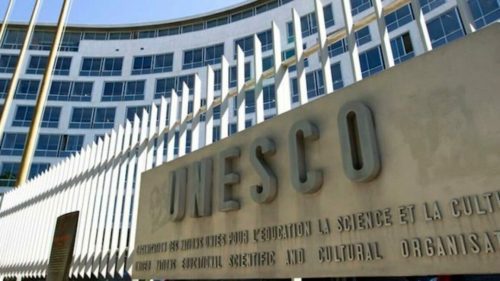The UNESCO Institute for African Culture and International Understanding (IACIU) continues its mission to nurture and champion cultural diversity in Africa by providing free entrepreneurial training to young Africans aspiring to thrive in the creative and cultural sectors. The latest edition of this training program welcomed over 50 participants from various African countries at the institute’s office in Abeokuta, Ogun State.
Emeritus Professor Peter Okebukola, Director of the Institute and former executive secretary of the National Universities Commission (NUC), extended a warm welcome to the participants. He underscored UNESCO’s dedication to equipping African youth, especially those in educational institutions with interests in the creative arts, with the necessary knowledge and skills to excel as entrepreneurs in the cultural and creative industries.
Okebukola expressed confidence that upon completing the training, the participants would not only embark on careers in these industries but would also immediately contribute by creating goods and providing services in their respective regions.
Ambassador Adebola Labiran, former Nigerian High Commissioner to India and now Senior Programme Advisor to the UNESCO Institute for African Culture and International Understanding, represented the institute at the forum.
Okebukola emphasized the significance of digital education in the training program, stating that a sound understanding of digital tools and skills has become crucial for anyone aiming to remain relevant in the 21st-century economy. The program provides a valuable opportunity for trainees to explore digital platforms for more effective and profitable work.
Recognizing the pivotal role of cultural and creative industries in economic growth, reducing inequalities, and achieving the UN’s 2030 Sustainable Development Agenda, the institute is dedicated to inspiring more African youth to embrace the diverse opportunities offered by these sectors, which are already giving rise to new entrepreneurs.
Okebukola disclosed the institute’s goal to train over 200 young individuals in creative arts by 2025. He emphasized their commitment to raising awareness about the UNESCO 2005 Convention and encouraging signatory countries, including Nigeria, to leverage the digital landscape for promoting and reaping the numerous benefits of the Convention.
He added that every participant in this training program should recognize that cultural goods and services represent people’s identity, values, and meaning. Therefore, these cultural expressions should not be treated as mere commodities or consumer goods. The institute is urging signatory countries to implement suitable measures to safeguard and promote the diversity of cultural expressions and ensure the free flow of ideas and works among themselves.
Okebukola concluded by emphasizing that achieving this objective, particularly in Africa, necessitates the combined efforts and support of states’ parties to the Convention and their people.









